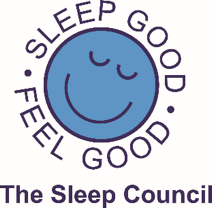
Experts at The Sleep Council say as well as resolving to get fitter, slim down, try a new hobby or eat more healthily in the New Year, most of us need to take sleep more seriously.
“Not enough sleep or too much sleep is linked to chronic diseases such as diabetes, coronary heart disease, obesity and anxiety (1),” said Lisa Artis of The Sleep Council.
“We spend a third of lives sleeping and it’s vital to our health and wellbeing, yet we don’t always pay enough attention to just how important good sleep is to how well we cope with everyday life.
Lisa continued: “Lack of sleep suppresses your immune system making you more vulnerable to infections and metabolic and hormone changes amongst other health issues. So we’re encouraging everyone add a Sleep MOT into their resolutions this January.”
Here’s a step-by-step Sleep MOT guide:
- How much sleep?
The average amount of sleep an adult might expect is around seven to eight hours a night. However, there is no ‘normal’ length of time – whatever is natural for you. We all feel tired at times but it is important that it is not disruptive to your daily life and general health.
- Is it time for a new bed?
Do you ever wake up with neck or back ache? When lying in bed, do you feel springs or ridges beneath the surface? Avoid the ‘Seven Year Hitch’ – the point at which existing beds may still look good but are beginning to offer less support than a new one (2). Seize the January sales opportunities and invest in a better night’s sleep if your bed is seven years old or more.
- Rate your routine
Going to bed and getting up at roughly the same time, all the time, will programme your body to sleep better. Choose a time when you are most likely to feel sleepy.
- Cut the coffee – and the wine!
Cut down on stimulants such as caffeine in tea or coffee – especially in the evening. They interfere with falling asleep and prevent deep sleep. Have a hot milky drink or herbal tea instead.As we’re all starting our new year’s diets, over-indulging might not be as big of an issue in January, but too much food or alcohol just before bedtime can play havoc with sleep patterns. Alcohol may help you fall asleep initially, but will interrupt your sleep later on in the night.
- And if you really can’t sleep…
…don’t lie there worrying about it. Get up and do something you find relaxing until you feel sleepy again – then go back to bed.Try having a warm bath, listen to some quiet music, read a book or do some yoga – all help to relax both the mind and body. Deal with worries or a heavy workload by making lists of things to be tackled the next day.

For more information, visit the Sleep Council Website
(1) Too much sleep (over 10 hours), as well as too little sleep (six hours or less), is linked to chronic diseases such as diabetes, coronary heart disease, obesity and anxiety in those aged 45 and over. (Centers for Disease Control and Prevention, October 2013)
(2) Proof that mattresses could offer significantly less support and comfort than a new one after as little as six years were confirmed in the results of a scientific mattress ‘autopsy’ conducted for The Sleep Council and published by FIRA – the UK’s leading furniture testing and research centre – in 2011.
About the Sleep Council
The Sleep Council is a generic body that aims to:
- Raise awareness of the importance of a good night’s sleep to health and wellbeing.
- Provide helpful advice and tips on how to improve sleep quality.
- Provide helpful advice on how to choose the right bed for optimum sleeping comfort.
The Sleep Council is funded by the National Bed Federation, the trade association for UK and Eire bed manufacturers plus UK and EU component suppliers.



















